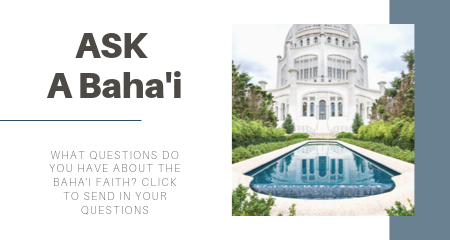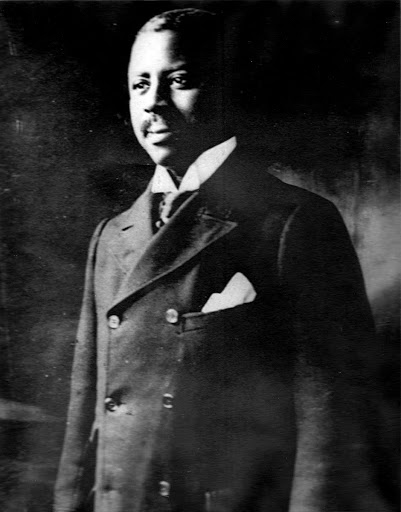Ask A Baha’i: Who is the first African American of the Baha’i Faith?
Who is the first African (Black) American of the Baha’i Faith? And, what year did they join?
In 1898, Robert Turner, a former slave, became the first African American to embrace the Baha’i Faith. He was born in Virginia in 1855. Turner was a contemporary of Baha’u’llah, who made his declaration as the Manifestation of God for this day in 1863.
As a free man, Turner began working for George and Phoebe Hearst in California. He began as George’s valet, then served as butler and steward for Phoebe. Turner served the Hearst family for 35 years until his own death in 1909.
Phoebe Hearst was a philanthropist, feminist, and suffragist, active in many social causes and interested in religion. She had tea in Paris with a woman who discussed the Baha’i Faith with her. Turner served the tea and listened.
After returning to California, both Phoebe and Turner became Baha’is in 1898. In December of that year, Phoebe funded the first group of Western Baha’i pilgrims to visit the Holy Land. There were 15, including herself and Turner.
In Akka
‘Abdu’l-Baha was still a prisoner of the Ottoman Government when the pilgrims arrived in mid-December. They were allowed to visit him in Akka in three small groups, each visiting separately. When Turner’s group visited, the servant “initially waited outside the room where the pilgrims met with ‘Abdu’l-Baha, feeling that he was not worthy of meeting him, but ‘Abdu’l-Baha left the room to meet Robert and embraced him.” He met with ‘Abdu’l-Baha at least once more before leaving.
One commentary notes, “‘Abdu’l-Bahá displayed a great affection for Turner … in stark contrast to the conventions of interracial interaction in Western societies. In this way [‘Abdu’l-Baha] modeled how true Bahá’ís should act towards all members of the human race.”
‘Abdu’l-Bahá told Turner that, “if he remained firm and steadfast until the end, he would be the door through which a whole race would enter the Kingdom.” Turner did remain steadfast.
Of that pilgrimage, Shoghi Effendi has written: “Even Mrs. Hearst’s butler, a negro named Robert Turner, the first member of his race to embrace the Cause of Bahá’u’lláh in the West, had been transported by the influence exerted by ‘Abdu’l‑Bahá in the course of that epoch-making pilgrimage.
“Such was the tenacity of his faith,” Shoghi Effendi wrote, “that even the subsequent estrangement of his beloved mistress from the Cause she had spontaneously embraced failed to becloud its radiance, or to lessen the intensity of the emotions which the loving-kindness showered by ‘Abdu’l‑Bahá upon him had excited in his breast.”
Phoebe Hearst “helped play a key role in the spread of the religion in the United States,” but an attempt “to extort money from her … had caused her estrangement from some Bahá’ís.” Yet in October, 1912, she hosted ʻAbdu’l-Bahá at her California home, even though she was “estranged from the Bahá’í community.” During his stay, ʻAbdu’l-Bahá assured her that “anyone who tried to extort money or goods from others should not be considered a true Bahá’í.”
Robert Turner’s Legacy
After Turner’s passing in 1909, ‘Abdu’l-Baha’ wrote: “As to Mr. Robert, the news of his ascension saddened the hearts. He was in truth most devoted. Gracious God! What a shining candle was lighted within that black-colored lamp. Praise be to God that this candle ascended from its earthly lamp unto the immortal Kingdom, to gleam and shine in the assemblage of heaven … With his last breath,” the tablet continues, “He was aided to say ‘Alláh-u-Abhá’ [God the All-Glorious] and stir thereby the hearts of those present.”
The tablet concludes with this prayer: “O Thou Provider, O Thou Forgiver! Exalt dearly loved Robert in Thy Kingdom and, in the garden of the Abhá Paradise, make him an intimate of the birds of the meadow. O All-Knowing God! While that innocent soul was black in color, he was, like unto the black pupil of the eye, a source of radiant light.
“O Thou Forgiving Lord! Enable that yearning soul to behold Thee and cause that thirsty one to drink his fill of the water of life. Thou art the Bestower, the Pardoner, the Loving.”
Thus did ‘Abdu’l-Baha pay tribute to the first American of color, an African-American who recognized the power and truth in the message of Baha’u’llah. That message is now embraced by millions of every hue and of all ethnicities around the world. Baha’is are found from teeming cities to remote rural villages, one humanity recognizing the essential oneness of God, the essential oneness of all religions and the oneness of all humankind.
As promised by ‘Abdu’l-Baha, Robert Turner’s steadfastness continues to inspire others.








